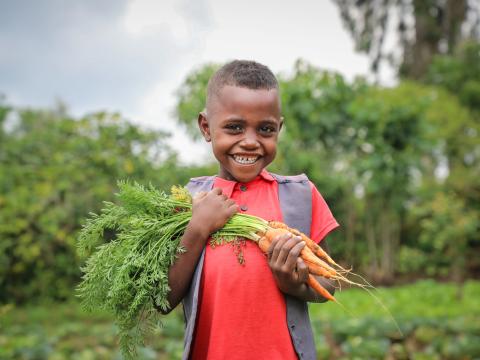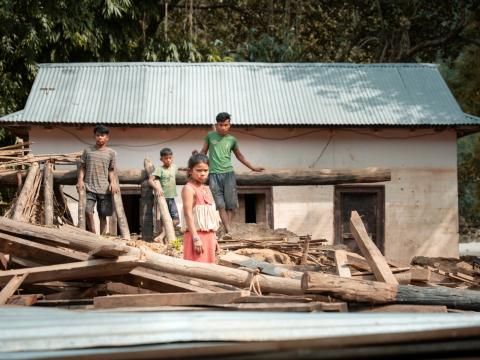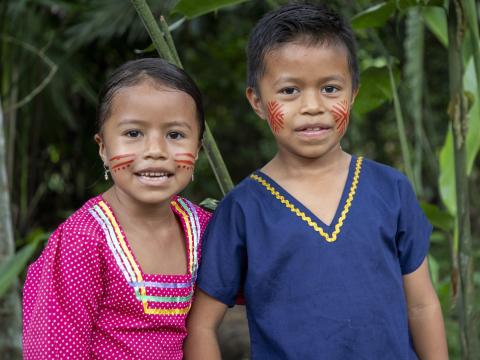From Concrete to Regreened Cities that Nurture Children
Hausner Wendo, Environmental Sustainability & Climate Action Advisor, and Geeta Dongol, Urban Programming Specialist, reflect on how transforming concrete jungles into living, breathing ecosystems could redefine climate justice and resilience for the world’s most vulnerable urban families.
27 October 2025.
Cities have always symbolised opportunity, innovation, and human progress. Yet today, they are also at the epicentre of the climate crisis, hotbeds of inequality and environmental fragility. Floods, heatwaves, open dumps, toxic air, water scarcity, and displacement are not distant possibilities but lived realities for millions. According to the Intergovernmental Panel on Climate Change Report , it is the poorest urban residents especially children in informal settlements who shoulder the heaviest burden.
One might contend that while the world debates climate impact and biodiversity loss, the solutions are quietly emerging from those very neighbourhoods most at risk. Families living on the edge of survival are turning concrete into canopy, creating microclimates of hope amid asphalt and dust. Their ingenuity reveals a profound truth: the fight for climate and environmental justice will not be won in conference halls but in communities.
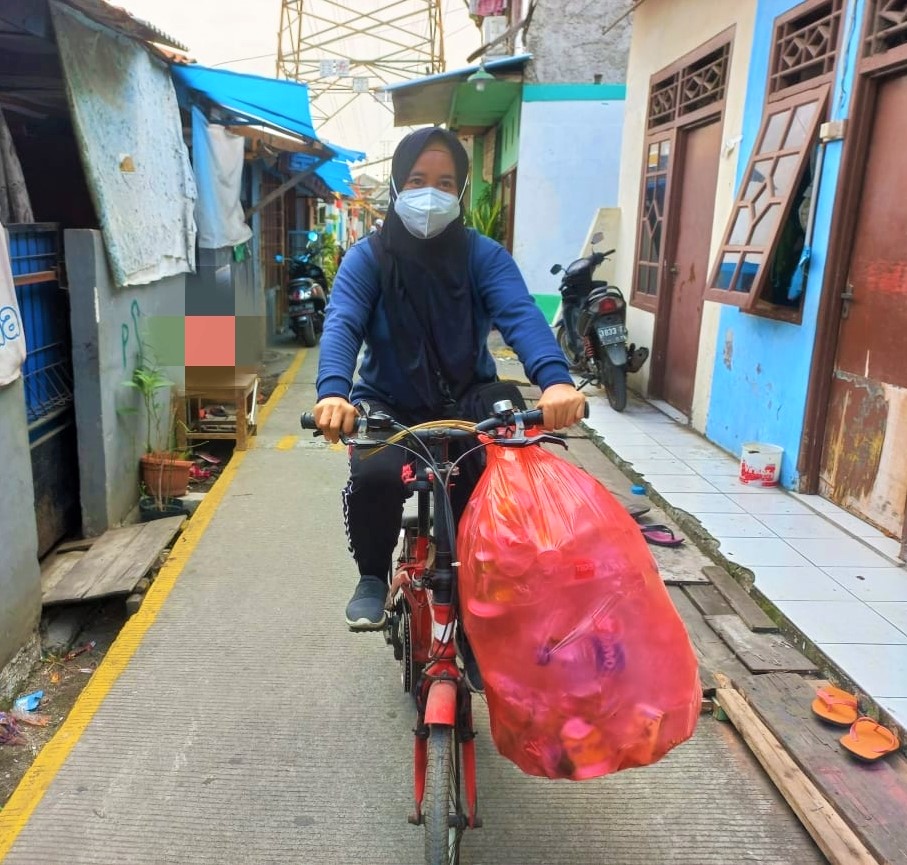
When Waste Becomes Wealth
The PHINLA project in the Philippines, Indonesia, and Sri Lanka exemplifies this shift. It transforms urban waste from a symbol of neglect into a resource for empowerment. Through circular economy practices, waste becomes livelihood an unexpected currency of dignity and resilience. Communities recycle and repurpose materials once destined for landfill, reducing pollution and creating green jobs in the process.
PHINLA is not a charity intervention, it is systemic reform from the ground up based on circular economy. By merging sustainable waste management with income generation, it redefines what it means to build resilient, self-reliant cities. It also strengthens civic participation through Citizen Voice and Action, giving marginalised residents a seat at the table of environmental decision-making.
Although it could be said that large-scale infrastructure will always be necessary, PHINLA challenges the notion that progress must come from above. It reminds us that genuine transformation begins when citizens reclaim ownership of their surroundings.
Cynthia’s Garden: Resistance in Bloom
Nowhere is this more vivid than in the story of Meliponiculture
“My first harvest helped me feed my family, pay school fees, and pass on a valuable skill to children, so they’ll have something to rely on, even when I’m no longer here,” she says, her hands resting proudly on the edge of a makeshift garden bed.
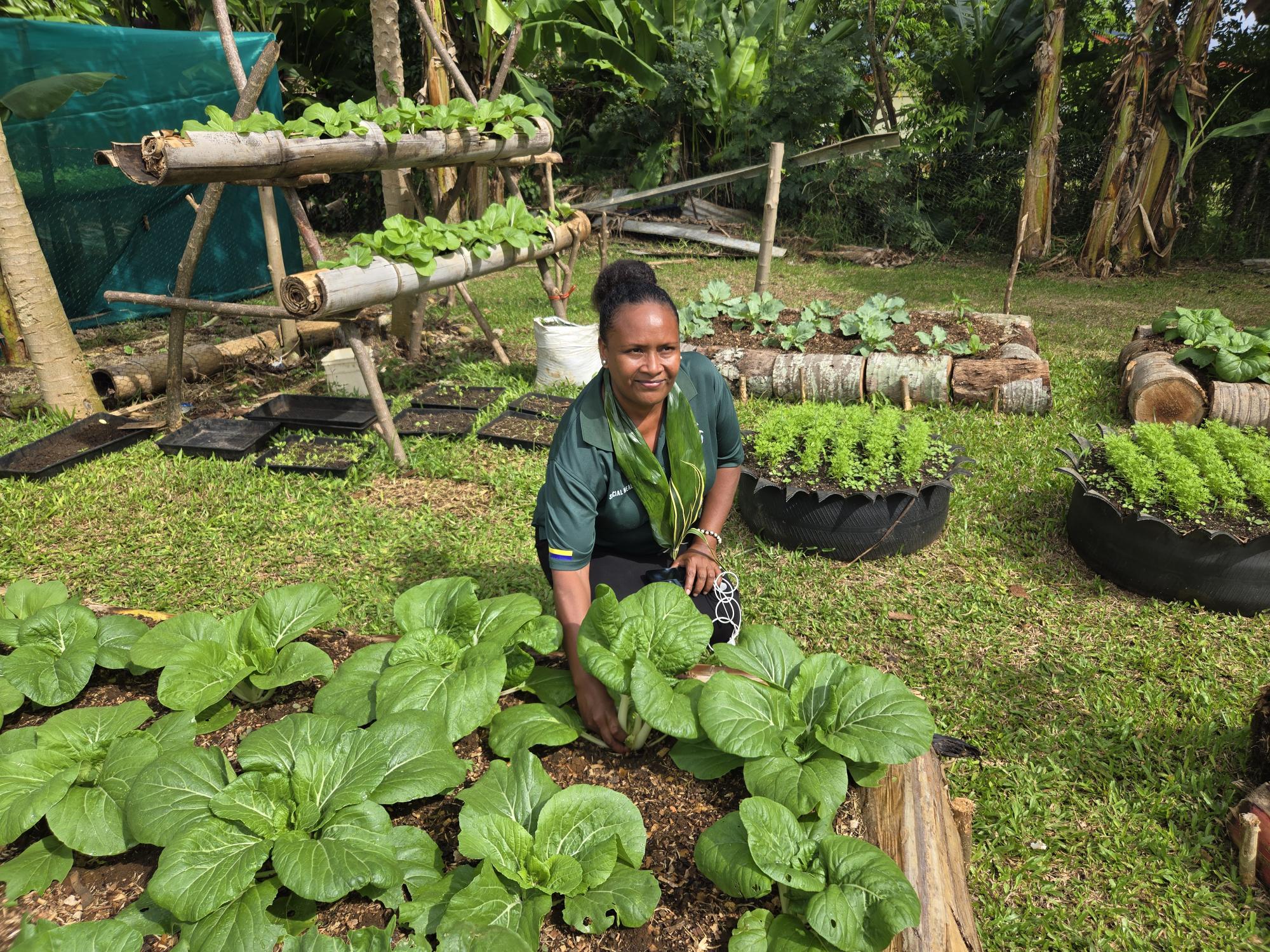
Through World Vision’s NOURISH project, Cynthia turned her modest urban plot into a thriving garden using recycled containers and repurposed wood. What began as a survival tactic became a classroom for her children and a statement of defiance against the growing precarity of urban life.
In Vanuatu, nearly 6,000 people have joined this quiet movement, transforming sterile city corners into productive green sanctuaries. These backyards, vertical, and rooftop gardens not only combat hunger and malnutrition but also create safe, restorative spaces for children to play, learn, and dream. Arguably, such acts of local resilience offer the clearest blueprint for global change. They prove that sustainability is not an abstract policy goal it is a lived practice rooted in community, creativity, and care.
Regreening Communities as Justice
At the heart of World Vision’s Regreening Communities (RGC) model lies a radical idea: that children’s right to a healthy environment must anchor urban planning and climate action. The Just and Resilient Cities for Children framework translates this principle into tangible guidance for governments, city planners, and development agencies.
In fragile or conflict-affected cities, where environmental shocks often collide with governance breakdowns, regreening can also be a form of peacebuilding. Shared gardens and green corridors become neutral spaces for dialogue, solidarity and healing proof that ecology and equity are intertwined.
While persuasive, the mainstream “green transition” narrative often ignores one uncomfortable truth: sustainability without justice is exclusion by another name. If climate resilience and environmental sustainability strategies do not reach those living in slums, alleys, and informal settlements, then they are not solutions at all they are omissions.
A New Urban Social Contract
Policymakers, donors, and municipal authorities now stand at a pivotal crossroads. They can persist in shaping cities that isolate, pollute, and divide or choose instead to invest in those that heal, connect, and endure. The moment demands urgency and vision: regreening must be woven into city climate strategies, education systems, and urban planning frameworks, not treated as an afterthought or aesthetic gesture.
The evidence is clear: when communities take the lead, sustainability and resilience follows; when children’s wellbeing is placed at the centre, the future begins to flourish.
Cynthia’s small garden in Port Vila is no anomaly; it is a living preview of what is possible when hope is cultivated alongside soil. The only question that remains is whether we will listen, learn, and have the courage to follow her lead.
Hausner Wendo is the Environmental Sustainability and Climate Action (ESCA) Advisor with WVI. With more than 13 years of work and research experience on environmental sustainability, climate and disaster resilience, and carbon-based programming across East Africa, he provides technical and strategic guidance for World Vision’s ESCA programming and policy implementation.
Geeta Dongol is a Specialist in Urban Programming at World Vision, bringing over eleven years of experience to the role. She leads the development of technical capabilities in urban programming across the World Vision Partnership, working collaboratively with field and regional offices as well as thematic experts.
